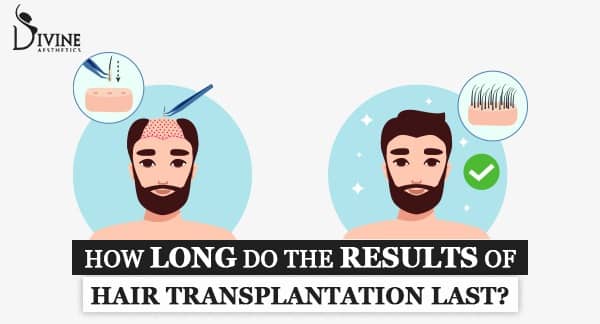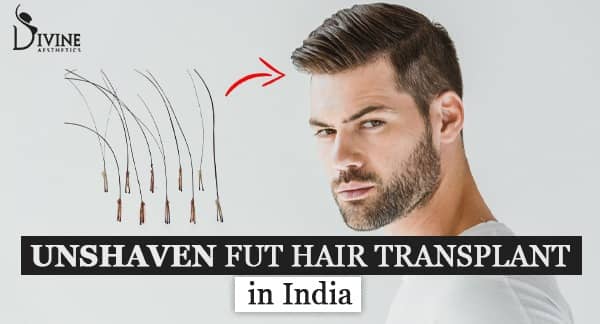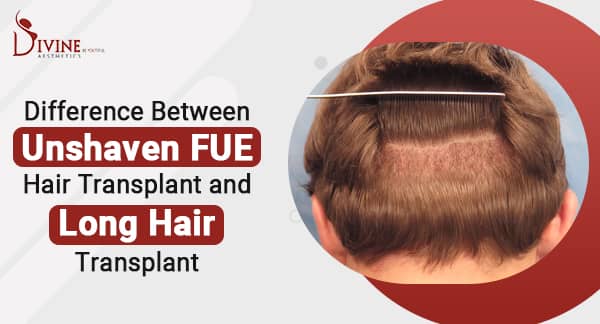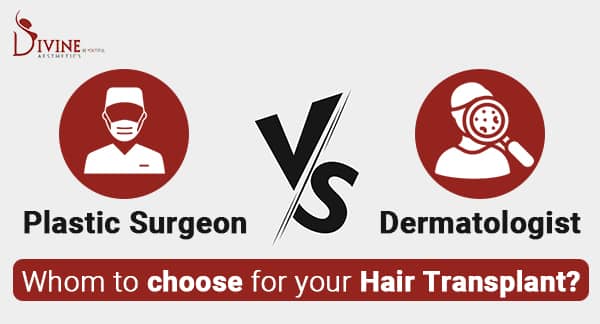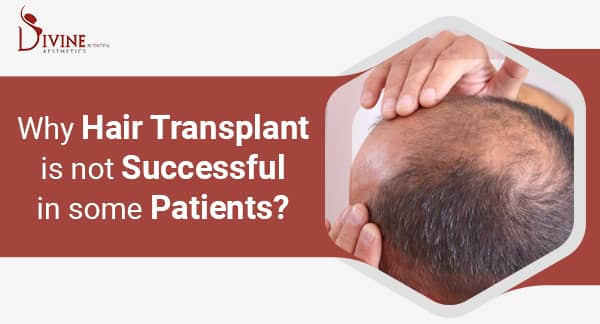Why Divine is the Best Hair Transplant Clinic in India
Best hair transplant clinic in India
Hair loss is a common issue affecting millions of people worldwide, causing distress and affecting self-esteem. With advancements in medical technology, hair transplant procedures have become a popular and effective solution for restoring hair and confidence. India has emerged as a global hub for hair transplant surgeries, offering world-class treatment at competitive prices. Keep reading this blog to find out what a hair transplant entails, the different types of hair transplants, who should consider this procedure, and why Divine Cosmetic Surgery is the best choice for hair transplants in India.
Why Divine Is The Best Hair Transplant Clinic In India?
Divine Cosmetic Surgery stands out as the best hair transplant clinic in India not only for its exceptional medical expertise and state-of-the-art facilities but also for hair transplant cost-effectiveness. At Divine, patients receive top-notch hair transplant procedures at highly competitive prices, ensuring that high-quality treatments are accessible to a broad range of individuals.
Dr. Amit Gupta and his experienced team offer personalized care without compromising on the quality of service, making Divine Cosmetic Surgery an ideal choice for those seeking affordable yet excellent hair restoration solutions.
Beyond Dr. Amit Gupta, you will also find other talented plastic surgeons at Divine Cosmetic Surgery like Dr. Aakanksha Goel and Dr. Sudhanshu Punia. Dr. Punia's expertise covers a broad spectrum of procedures, including hair transplants.
Dr. Aakanksha Goel is the Chief Assistant in various major surgeries, including hair transplants. Her extensive training and practical experience have honed her skills in delivering exceptional results.
Hair Transplant
A hair transplant is a surgical procedure that involves transferring hair follicles from one part of the body, usually the back or sides of the scalp, to areas experiencing hair loss or thinning. This process aims to restore hair growth in balding or thinning areas, providing a natural and permanent solution to hair loss.
The transplanted hair follicles are typically resistant to the hormones that cause hair loss, ensuring long-lasting results.
To learn more about hair transplants from Dr. Amit Gupta, the founder and director at Divine Cosmetic Surgery, the best hair transplant clinic/hospital in Delhi with price, book an appointment today.
Watch the video given below about the hair transplant experience of a USA patient at Divine.
Hair Transplants Techniques at Divine
There are several techniques used in hair transplant procedures, each with its own advantages and suitability for different patients. The main types include:
Follicular Unit Transplantation (FUT)
FUT, also known as strip harvesting, involves removing a strip of scalp from the donor area (usually the back of the head) and dissecting it into individual follicular units. These units are then transplanted into the balding or thinning areas. FUT is known for its ability to harvest a large number of grafts in a single session, making it suitable for extensive hair loss cases.
Follicular Unit Extraction (FUE)
FUE is a minimally invasive technique that involves extracting individual hair follicles directly from the donor area using a small punch tool. These follicles are then implanted into the recipient area. FUE leaves minimal scarring and has a shorter recovery time compared to FUT. It is ideal for patients who prefer a less invasive procedure or have smaller areas of hair loss.
Long Hair Transplant(Unshaven)
Long hair transplant is a technique where long hair grafts are used instead of short hair grafts. This allows patients to see immediate results post-surgery without waiting for the transplanted hair to grow. It is a specialized procedure that requires a high level of skill and precision.
Synthetic Hair Transplant
Synthetic hair transplant uses artificial hair fibers to cover bald areas. This method is suitable for individuals who do not have enough donor hair or are not suitable candidates for traditional hair transplants. Synthetic hair transplant offers an immediate solution but requires regular maintenance.
Who Should You Get Hair Transplants?
Hair transplants are suitable for both men and women experiencing hair loss due to various reasons, including:
Male Pattern Baldness: The most common cause of hair loss in men, characterized by a receding hairline and thinning on the crown.
Female Pattern Hair Loss: Thinning of hair on the top and crown of the scalp, often starting with the widening of the center part.
Traction Alopecia: Hair loss caused by tight hairstyles that pull on the hair roots.
Scarring Alopecia: Hair loss due to scarring from injury, burns, or surgery.
Hair Loss Due to Medical Conditions: Conditions such as thyroid disorders, lupus, or severe infections.
People Seeking Cosmetic Improvement: Individuals who want to enhance their hairline, thicken their hair, or cover areas of thinning.
Ideal candidates for hair transplants are those with sufficient donor hair, good general health, and realistic expectations about the outcome of the procedure.
Read another article, Causes for not Successful Hair Transplant
Get A Hair Transplant At Divine Cosmetic Surgery
Divine Cosmetic Surgery, led by Dr. Amit Gupta, is one of the leading and best hair transplant clinics in India. The clinic offers a comprehensive range of hair restoration services, ensuring personalized treatment plans tailored to each patient's unique needs.
When you get a hair transplant at Divine Cosmetic Surgery, you get access to:
Experienced Surgeons: The team at Divine Cosmetic Surgery comprises highly skilled and experienced surgeons who specialize in hair transplant procedures.
State-Of-The-Art Facilities: The hospital is equipped with advanced technology and modern facilities to ensure the highest standards of care and safety.
Personalized Care: Each patient receives individualized attention and a customized treatment plan based on their specific needs and goals.
Natural-Looking Results: The clinic focuses on achieving natural-looking results that blend seamlessly with the patient's existing hair.
Comprehensive Services: In addition to hair transplants, Divine Cosmetic Surgery offers a wide range of cosmetic and plastic surgery services, providing a holistic approach to beauty and wellness.
Affordable Pricing: The clinic offers competitive pricing and flexible financing options, including EMIs, making hair transplants accessible to a broader audience.
Beyond all of this, Dr. Amit Gupta's extensive training and international exposure have equipped him with the skills and knowledge to handle even the most complex hair transplant cases. His dedication to staying updated with the latest advancements in the field guarantees that his patients receive the best possible care. On top of all this, we provide flexible payment options, pick-up and drop facilities, and stay options.
Conclusion
Divine Cosmetic Surgery, under the leadership of Dr. Amit Gupta, stands out as the best hair transplant clinic in Delhi, India. The clinic's commitment to excellence, personalized care, and state-of-the-art facilities make it the ideal choice for anyone considering a hair transplant.
Let us help you regain your confidence and achieve the hair you’ve always desired with our expertise and dedication to patient satisfaction.
Schedule Your Consultation with Dr. Amit Gupta Today!
FAQs
Q. What should I look for in a top hair transplant clinic in India?
Look for clinics with experienced surgeons, positive patient reviews, advanced technology, and comprehensive pre- and post-operative care.
Q. Which cities in India are known for having top hair transplant clinics?
Cities like Delhi, Mumbai, Bangalore, and Chennai are known for having top hair transplant clinics.
Q. How do I verify the credentials of a hair transplant surgeon in India?
Check the surgeon's certifications, memberships in professional organizations, and reviews or testimonials from previous patients.
Q. How do I choose between FUE and FUT techniques offered by a clinic?
Discuss your specific needs and goals with the surgeon, who can recommend the best technique based on your hair type, extent of hair loss, and desired results.
Q. What kind of post-operative care should a good clinic provide?
A good clinic should provide detailed post-operative instructions, follow-up appointments, and support for managing any complications or concerns.
Q. How important are patient reviews and before-and-after photos in choosing a clinic/hospital?
They are very important as they provide insights into the clinic's success rates, patient satisfaction, and the quality of results.
Q. Are there any specific accreditations or certifications that top clinics should have?
Look for clinics accredited by recognized medical boards and associations, such as the International Society of Hair Restoration Surgery (ISHRS).
Q. What questions should I ask during a consultation with a hair transplant surgeon?
Ask about the surgeon's experience, success rates, the recommended technique, potential risks, recovery time, and costs involved.
Q. How do I know if a hair transplant clinic is using advanced technology?
Check if the clinic mentions using modern equipment like robotic FUE devices or advanced imaging tools, and inquire directly during the consultation.
Q. Is it safe to travel for a hair transplant in India, and do clinics offer assistance for international patients?
Yes, it is safe if you choose a reputable clinic; many top clinics offer assistance with travel arrangements, accommodation, and local transportation for international patients.
Q. What should I expect during the initial consultation at a hair transplant clinic?
Expect a thorough evaluation of your hair loss, a discussion of your goals, a recommended treatment plan, and detailed information about the procedure and costs.
Q. Can I get a package deal for hair transplant and accommodation in India?
Yes, many clinics offer package deals that include the hair transplant procedure, accommodation, and sometimes even travel arrangements.
Q. What are the typical success rates for hair transplants at top clinics in India?
Top clinics in India typically report success rates of 90-95%, with most patients achieving satisfactory hair growth and natural-looking results.



